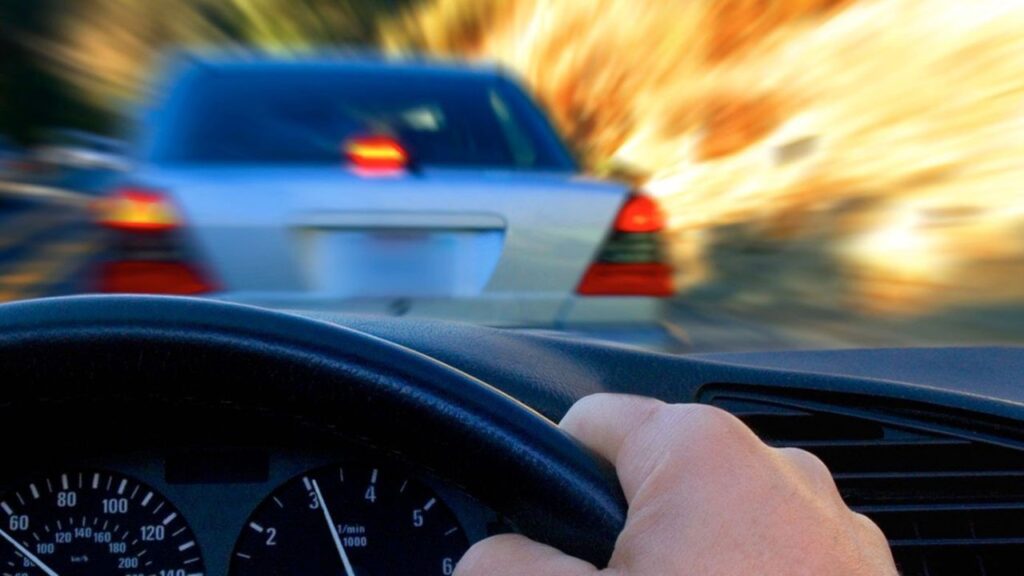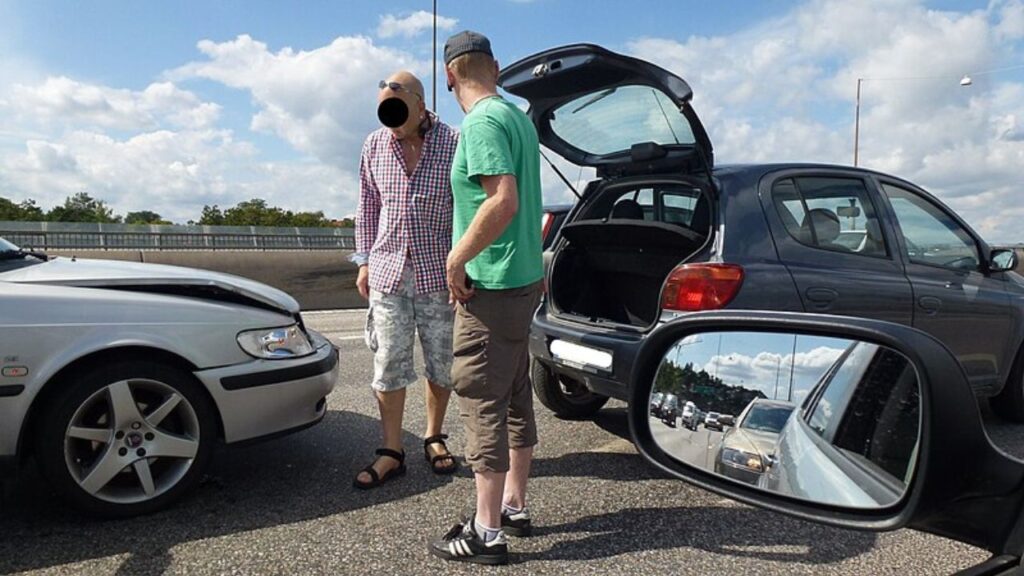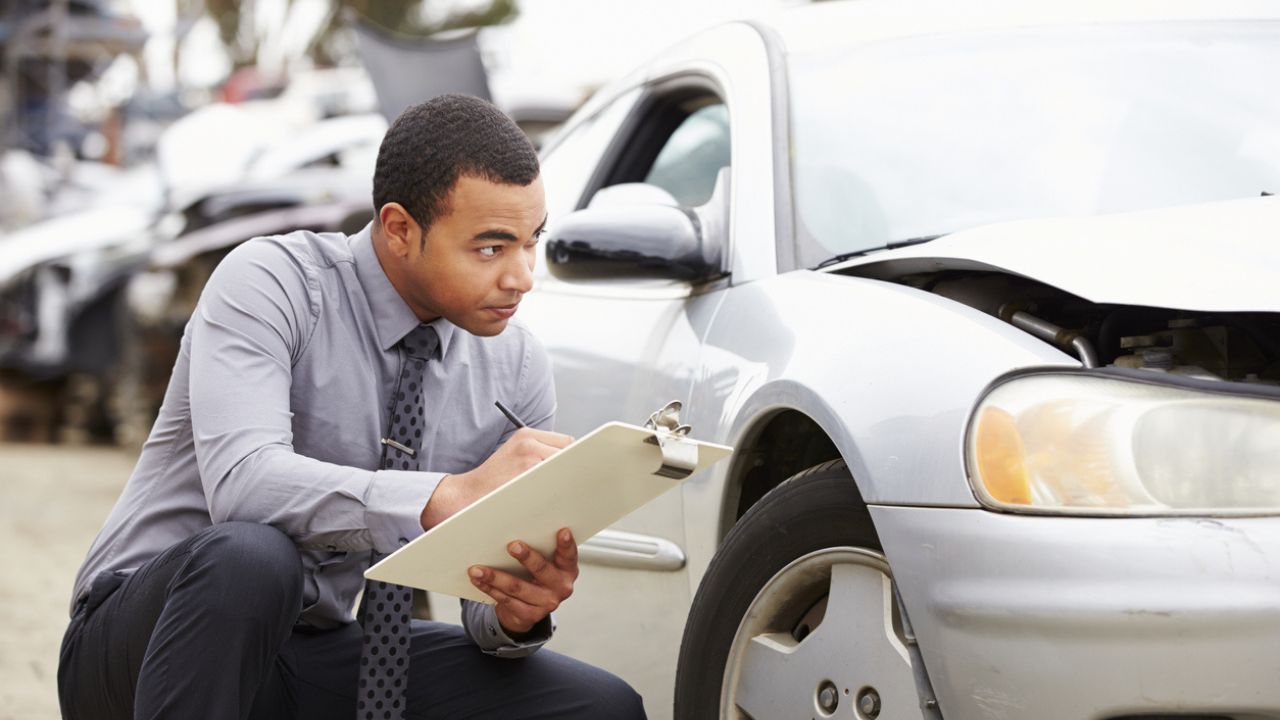Is Brake Checking Illegal In Florida? Brake checking is illegal in Florida as it can be considered aggressive driving, reckless driving, or road rage.
Driving on Florida’s busy roads can often be a stressful experience, especially when faced with aggressive drivers or tailgaters.
In these moments of frustration, some drivers might engage in a behavior known as “brake checking” to signal their displeasure or to force the tailgater to back off.
However, while this action may seem like a quick fix to a frustrating situation, brake checking is not only dangerous but also potentially illegal in Florida.
This article will delve into the legality of brake checking in Florida, the potential consequences, safer alternatives, and the broader implications of such behavior on the road.
Contents
What Is Brake Checking?
Definition and Explanation
Brake checking is the act of abruptly hitting the brakes to scare or warn a driver who is following too closely, commonly known as tailgating.
The intent behind brake checking is often to force the tailgater to back off, slow down, or maintain a safer following distance.
This maneuver is usually executed out of frustration, anger, or as a retaliatory act against what is perceived to be aggressive driving behavior.
When a driver suddenly brakes without any reasonable cause, it can catch the following driver off guard, resulting in a rear-end collision. [Is Brake Checking Illegal In Florida?]
Even if an accident does not occur, it can lead to panic, swerving, or overcorrection by the following driver, creating a hazardous situation for all road users.
Why Do Drivers Brake Check?
Drivers may resort to brake checking for several reasons, which are often rooted in frustration or the perception of being threatened. Some common reasons include:
- Retaliation Against Tailgating: Tailgating, or following too closely, is a common cause of road rage. When a driver feels threatened by a tailgater, they may brake check to send a message to back off.
- Expressing Anger or Frustration: Some drivers use brake checking as an outlet for their anger or frustration over other road users’ behavior. [Is Brake Checking Illegal In Florida?]
- Asserting Control: Some may use brake checking as a way to assert dominance or control over another driver, especially if they feel the other driver is being aggressive or disrespectful.
- Defensive Reaction: Occasionally, drivers may mistakenly believe brake checking is a defensive driving tactic. However, this is a misconception, as it can escalate the situation rather than diffuse it.
Is Brake Checking Illegal In Florida?
Florida Traffic Laws Overview
Florida law encompasses various dangerous driving behaviors under categories like reckless driving, aggressive driving, and road rage. These categories are designed to address actions that are unsafe and could potentially harm other road users. [Is Brake Checking Illegal In Florida?]
Brake checking fits within these categories, particularly as it involves the deliberate creation of a road hazard. Under Florida law, any behavior that compromises road safety or is deemed as intentionally reckless can lead to legal consequences.
Brake Checking as Reckless Driving
In Florida, brake checking is thought to be a form of careless driving. careless or Reckless driving, specified under Florida Statutes 316.192, happens when a driver runs a car with a “willful or wanton disinterest for the protection of individuals or belongings.”
Brake checking can easily cause rear-end collisions, property damage, injuries, or worse, making it a serious offense. Reckless driving is treated as a significant traffic violation and can lead to penalties that escalate with the severity of the offense and the driver’s record.

Consequences of Brake Checking
The consequences of brake checking in Florida can be severe and multifaceted. These consequences include:
- Fines and Penalties: A first offense of reckless driving, which could include brake checking, can result in up to 90 days in jail or a $500 fine. Repeat offenses lead to stiffer penalties, including up to six months in jail and a $1,000 fine.
- Points on Driver’s License: Reckless driving adds points to a driver’s record in Florida. Accumulating too many points can lead to license suspension, increased insurance premiums, and mandatory driving courses. [Is Brake Checking Illegal In Florida?]
- Increased Insurance Premiums: Insurance companies view reckless driving as a high-risk behavior. As a result, those convicted of reckless driving, including brake checking, often face significant hikes in their insurance premiums, sometimes doubling or tripling the cost.
- Potential Criminal Charges: In cases where brake checking results in severe injury or death, the responsible driver could face criminal charges, including vehicular assault or manslaughter.
- Legal Liability in Civil Court: If brake checking results in an accident, the driver may also face civil liability. The injured party can sue for damages, including medical bills, lost wages, pain and suffering, and more.
Real-Life Cases and Penalties
Florida has seen several real-life cases where brake checking resulted in accidents and subsequent legal action. [Is Brake Checking Illegal In Florida?]
For example, in cases where brake checking led to severe injuries or fatalities, the responsible drivers were often prosecuted and faced significant fines, license suspension, or even jail time.
Courts in Florida take such cases seriously, particularly if there is clear evidence of intent to harm or reckless disregard for public safety.
Why Is Brake Checking Dangerous?
Risks to All Drivers Involved
Brake checking poses significant risks not only to the driver engaging in the behavior but also to other road users. [Is Brake Checking Illegal In Florida?]
A sudden and unexpected stop can cause the following driver to rear-end the brake checker, potentially leading to serious accidents. The impacts can be devastating, ranging from vehicle damage to severe injuries or fatalities.
Potential for Chain-Reaction Collisions
Brake checking does not just risk a single collision; it can lead to chain-reaction accidents, especially on busy highways or in heavy traffic.
A single instance of brake checking can cause a ripple effect, leading to multiple rear-end collisions as drivers behind the initial accident attempt to stop or swerve.
Chain-reaction collisions can result in significant damage, injuries, and traffic disruptions, further increasing the danger. [Is Brake Checking Illegal In Florida?]
Impact on Insurance and Liability
Engaging in brake checking can have long-term consequences on a driver’s insurance rates and liability. Insurance companies may label drivers who brake check as high-risk, leading to increased premiums.
Additionally, if a driver is found at fault for an accident caused by brake checking, they could be held financially liable for all damages, medical expenses, and legal fees resulting from the collision.
Emotional and Psychological Consequences
Brake checking, and its potential aftermath, can also have emotional and psychological consequences for all parties involved.
Victims of brake checking-related accidents may suffer from trauma, anxiety, or a heightened fear of driving. [Is Brake Checking Illegal In Florida?]
Similarly, the driver who engaged in brake checking may experience guilt, stress, or regret following the incident, especially if injuries occurred.

Alternatives to Brake Checking
Safe Driving Tips
Instead of resorting to brake checking, drivers should consider safer and more responsible alternatives to manage tailgaters or aggressive drivers. Here are a few practical tips:
- Maintain a Safe Speed and Distance: If you’re being tailgated, maintaining a consistent speed and safe following distance from the car in front of you can help reduce the likelihood of an accident.
- Change Lanes Safely: If it is safe to do so, change lanes to allow the tailgater to pass. This action not only de-escalates the situation but also promotes a smoother flow of traffic.
- Avoid Eye Contact and Aggressive Gestures: Engaging with an aggressive driver can escalate the situation. Stay calm and avoid making eye contact or gestures that could provoke further aggression.
- Gradually Slow Down: Instead of brake checking, slowly reduce your speed to encourage the tailgater to pass or back off. This approach is much safer and can help defuse tension.
Using Legal Channels
If you feel threatened or harassed by another driver’s behavior, it is safer and more effective to report the aggressive driver to law enforcement.
Using a hands-free device, call the police and provide details such as the license plate number, location, and a description of the vehicle. This action ensures your safety and avoids the legal consequences associated with reckless driving.
Defensive Driving Courses
Taking a defensive driving course can also help drivers learn better techniques for dealing with aggressive drivers, including how to avoid escalating road rage situations and handle tailgaters safely.
These courses provide practical skills that help promote a safer driving environment for everyone. [Is Brake Checking Illegal In Florida?]
The Broader Implications of Brake Checking
Brake checking has broader implications beyond just the immediate legal and safety concerns. It reflects a larger issue of road rage and aggressive driving behaviors that plague many roads in Florida and across the United States.
Addressing these behaviors requires a collective effort by drivers, law enforcement, and policymakers to promote safer driving habits and foster a culture of respect and responsibility on the road.
Road safety campaigns, stricter enforcement of traffic laws, and public awareness initiatives are vital in combating road rage and reckless driving.
Encouraging drivers to adopt more defensive and less confrontational driving styles can significantly reduce the instances of brake checking and other aggressive driving behaviors.
Final Verdict
Brake checking is illegal in Florida as it falls under reckless driving, which is a punishable offense under state law. [Is Brake Checking Illegal In Florida?]
The consequences of brake checking can range from fines and license points to potential criminal charges, depending on the severity of the offense and its outcomes.
Brake checking is not only dangerous but also creates significant risks for everyone on the road. It is essential for drivers to consider safer, more constructive ways to handle aggressive or tailgating drivers, prioritizing safety and legality above all.
See Also: Are Hollow Points Illegal In Florida?
FAQs
Is brake checking always considered reckless driving?
Yes, brake checking is generally viewed as reckless driving because it involves creating an unsafe road environment.
What should I do if someone brake checks me?
If you are brake checked, maintain a safe distance, stay calm, and avoid aggressive retaliation. Consider reporting the incident to the authorities if necessary.
Can I contest a ticket for brake checking in Florida?
Yes, you can contest a ticket in court, but it’s essential to have solid evidence or a reasonable explanation to support your case. [Is Brake Checking Illegal In Florida?]
How many points will I get on my license for reckless driving in Florida?
Reckless driving can result in up to 4 points on your license in Florida, and accumulating too many points can lead to further penalties.
Is brake checking illegal in other states as well?
Yes, brake checking is generally considered dangerous and illegal in most states under reckless or aggressive driving laws.
Conclusion: Is Brake Checking Illegal In Florida?
Brake checking is a hazardous and illegal behavior on Florida’s roads, with serious legal, financial, and safety consequences.
It is crucial for all drivers to practice patience and caution, especially when faced with aggressive driving situations.
Choosing safer alternatives to manage tailgaters and maintaining a calm demeanor on the road will not only protect you but also contribute to safer roads for everyone.

Hello guys, I’m Trey Simpson from Los Angeles. After completing my J.D., I noticed a lack of clear information online about laws in different U.S. states. So, I created this blog to help. Now, I’m a lawyer and continue blogging. Thanks for visiting!

